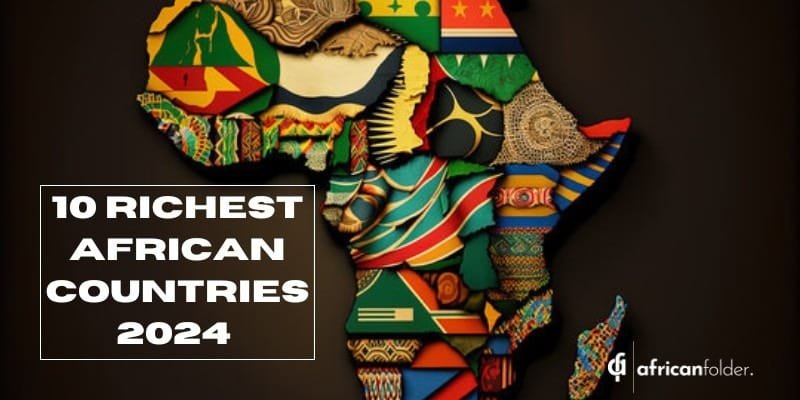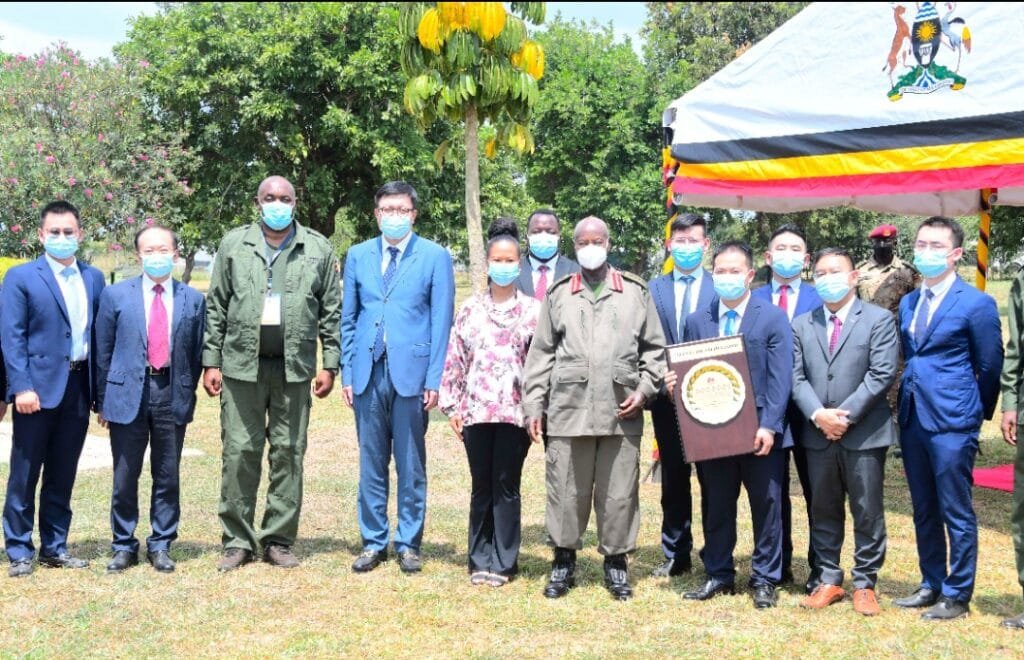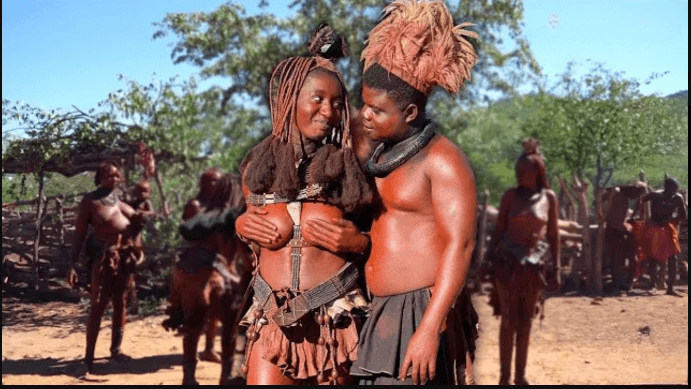Africa, the world’s second-largest continent, is a tapestry of 54 nations, home to over 1.3 billion people. While challenges like poverty and underdevelopment persist, many African countries boast thriving economies, rich natural resources, and improving living standards. In this article, we dive into the 20 richest African countries in 2024, ranked by GDP per capita—a key indicator of wealth distribution and quality of life—rather than total economic size. From island paradises to resource-rich powerhouses, these nations showcase Africa’s economic diversity and potential.
Unlike rankings focused solely on GDP, this list highlights countries where prosperity reaches citizens through higher income equality, better infrastructure, and sustainable growth. Curious about which African nations lead the pack in 2024? Here’s the lineup, followed by in-depth profiles and a comparison table.
Key Takeaways
- Tourism Fuels Small Nations: Seychelles and Mauritius leverage tourism and small populations for high per-capita wealth.
- Resource Dependency Varies: Oil drives Gabon, Libya, and Angola, but diversification efforts are critical for stability.
- Economic Diversity Matters: South Africa and Morocco shine with varied industries, though inequality remains a hurdle.
The Richest African Countries in 2024
1. Seychelles
| Category | Statistics |
|---|---|
| Capital | Victoria |
| Area | 457 km² |
| Population | ~107,660 |
| Population Density | 235 people/km² |
| Official Languages | Seychellois Creole, English, French |
| Currency | Seychellois Rupee (SCR) |
| GDP (Nominal) | $2.1 billion |
| GDP per Capita | $21,870 |
| Human Development Index | 0.802 (Very High) |
| Life Expectancy | 73 years |
| Literacy Rate | 95.9% |
| Major Industries | Tourism, fisheries, offshore finance |
| Major Exports | Fish, tourism services |
| Major Import Partners | UAE, France, South Africa |
| Time Zone | UTC+4 |
Seychelles stands as Africa’s wealthiest nation in 2024, thanks to its small population and a booming tourism sector that caters to luxury travelers. Beyond its postcard-perfect beaches, the country has cultivated a robust offshore financial hub, attracting global investors. Sustainable fishing and marine conservation efforts under its “blue economy” framework enhance economic resilience. With high literacy and life expectancy, Seychelles exemplifies how strategic focus on high-value industries can elevate living standards, though its reliance on tourism leaves it vulnerable to global economic shifts.
2. Mauritius
| Category | Statistics |
|---|---|
| Capital | Port Louis |
| Area | 2,040 km² |
| Population | ~1.27 million |
| Population Density | 622 people/km² |
| Official Languages | English (official), French, Creole |
| Currency | Mauritian Rupee (MUR) |
| GDP (Nominal) | $16.5 billion |
| GDP per Capita | $12,970 |
| Human Development Index | 0.802 (Very High) |
| Life Expectancy | 75 years |
| Literacy Rate | 91.3% |
| Major Industries | Financial services, tourism, ICT |
| Major Exports | Sugar, textiles, tourism services |
| Major Import Partners | China, India, France |
| Time Zone | UTC+4 |
Mauritius has transformed from a sugar-dependent economy into a diversified powerhouse, blending tourism with cutting-edge financial services and ICT. Its stable governance and investor-friendly policies make it a magnet for foreign capital, while Port Louis emerges as a regional business hub. The nation’s focus on renewable energy and digital innovation signals a forward-thinking approach, though challenges like income inequality and reliance on imports persist. Mauritius’ high HDI reflects a quality of life that rivals global standards, cementing its status among Africa’s elite.
3. Gabon
| Category | Statistics |
|---|---|
| Capital | Libreville |
| Area | 267,668 km² |
| Population | ~2.4 million |
| Population Density | 9 people/km² |
| Official Languages | French |
| Currency | Central African CFA Franc (XAF) |
| GDP (Nominal) | $22.3 billion |
| GDP per Capita | $9,310 |
| Human Development Index | 0.706 (High) |
| Life Expectancy | 66 years |
| Literacy Rate | 84.7% |
| Major Industries | Oil, manganese, timber |
| Major Exports | Crude oil, manganese |
| Major Import Partners | France, China, Belgium |
| Time Zone | UTC+1 |
Gabon’s wealth stems from its vast oil reserves, which have long fueled exports and government revenue. With a sparse population spread across dense rainforests, its high GDP per capita masks uneven wealth distribution. Recent years have seen efforts to diversify into manganese mining, sustainable forestry, and ecotourism, capitalizing on its biodiversity-rich landscapes. While infrastructure investments signal progress, Gabon faces the dual challenge of reducing oil dependency and improving social services to lift more citizens out of poverty.
4. Botswana
| Category | Statistics |
|---|---|
| Capital | Gaborone |
| Area | 581,730 km² |
| Population | ~2.7 million |
| Population Density | 4.6 people/km² |
| Official Languages | English, Setswana |
| Currency | Botswana Pula (BWP) |
| GDP (Nominal) | $21.2 billion |
| GDP per Capita | $7,870 |
| Human Development Index | 0.693 (Medium) |
| Life Expectancy | 69 years |
| Literacy Rate | 88.5% |
| Major Industries | Diamonds, tourism, agriculture |
| Major Exports | Diamonds, beef |
| Major Import Partners | South Africa, Canada, Israel |
| Time Zone | UTC+2 |
Botswana’s diamond industry has underpinned one of Africa’s most stable economies, complemented by a burgeoning tourism sector showcasing the Okavango Delta. Sound fiscal policies and low corruption levels have earned it praise as a governance model. Beyond gems, the country is diversifying into beef exports and tech innovation, though rural poverty remains a concern. Botswana’s steady growth and investment in education position it as a beacon of hope in a resource-reliant region.
5. Libya
| Category | Statistics |
|---|---|
| Capital | Tripoli |
| Area | 1.76 million km² |
| Population | ~7.1 million |
| Population Density | 4 people/km² |
| Official Languages | Arabic |
| Currency | Libyan Dinar (LYD) |
| GDP (Nominal) | $49.5 billion |
| GDP per Capita | $6,970 |
| Human Development Index | 0.718 (High) |
| Life Expectancy | 72 years |
| Literacy Rate | 91% |
| Major Industries | Oil, agriculture |
| Major Exports | Crude oil, natural gas |
| Major Import Partners | Turkey, Italy, China |
| Time Zone | UTC+2 |
Libya’s massive oil reserves propel its economy, yet years of conflict have hampered its potential. With a high GDP per capita buoyed by a modest population, the country boasts significant wealth on paper. Reconstruction efforts focus on reviving infrastructure and agriculture, but political instability continues to deter investment. Libya’s future hinges on peace and diversification to unlock broader prosperity.
6. Equatorial Guinea
| Category | Statistics |
|---|---|
| Capital | Malabo |
| Area | 28,050 km² |
| Population | ~1.7 million |
| Population Density | 61 people/km² |
| Official Languages | Spanish, French, Portuguese |
| Currency | Central African CFA Franc (XAF) |
| GDP (Nominal) | $11.4 billion |
| GDP per Capita | $6,730 |
| Human Development Index | 0.592 (Medium) |
| Life Expectancy | 62 years |
| Literacy Rate | 95.3% |
| Major Industries | Oil, LNG |
| Major Exports | Crude oil, natural gas |
| Major Import Partners | Spain, China, USA |
| Time Zone | UTC+1 |
Equatorial Guinea’s oil and liquefied natural gas (LNG) reserves have catapulted it into the upper echelons of African wealth per capita, yet this prosperity is heavily concentrated among elites. Despite a high literacy rate, much of the population lacks access to basic services, highlighting stark inequality. Efforts to diversify into agriculture and fisheries are underway, but political opacity and limited infrastructure slow progress, leaving the nation’s potential largely untapped beyond its resource sector.
7. South Africa
| Category | Statistics |
|---|---|
| Capital | Pretoria (administrative) |
| Area | 1.22 million km² |
| Population | ~61.9 million |
| Population Density | 51 people/km² |
| Official Languages | 11 (incl. English, Afrikaans, Zulu) |
| Currency | South African Rand (ZAR) |
| GDP (Nominal) | $358 billion |
| GDP per Capita | $5,790 |
| Human Development Index | 0.713 (High) |
| Life Expectancy | 64 years |
| Literacy Rate | 87% |
| Major Industries | Mining, manufacturing, finance |
| Major Exports | Gold, platinum, cars |
| Major Import Partners | China, Germany, USA |
| Time Zone | UTC+2 |
South Africa remains the continent’s most industrialized nation, with a diverse economy spanning mining, manufacturing, and financial services. Johannesburg’s financial hub and Cape Town’s tourism appeal underscore its dynamism, yet persistent unemployment and inequality challenge its growth. Investments in renewable energy and tech startups signal a shift toward sustainability, positioning South Africa as a leader despite social and economic disparities that demand urgent attention.
8. Algeria
| Category | Statistics |
|---|---|
| Capital | Algiers |
| Area | 2.38 million km² |
| Population | ~46.8 million |
| Population Density | 20 people/km² |
| Official Languages | Arabic, Berber |
| Currency | Algerian Dinar (DZD) |
| GDP (Nominal) | $267 billion |
| GDP per Capita | $5,720 |
| Human Development Index | 0.745 (High) |
| Life Expectancy | 77 years |
| Literacy Rate | 81.4% |
| Major Industries | Oil, gas, solar energy |
| Major Exports | Crude oil, natural gas |
| Major Import Partners | China, France, Italy |
| Time Zone | UTC+1 |
Algeria, Africa’s largest country by land area, thrives on its oil and gas reserves, which dominate exports and government revenue. Its push into solar energy leverages vast desert landscapes, while manufacturing gains traction. A high life expectancy and improving HDI reflect social progress, but youth unemployment and over-reliance on hydrocarbons pose risks, driving efforts to diversify and modernize this North African powerhouse.
9. Namibia
| Category | Statistics |
|---|---|
| Capital | Windhoek |
| Area | 825,615 km² |
| Population | ~2.6 million |
| Population Density | 3.2 people/km² |
| Official Languages | English |
| Currency | Namibian Dollar (NAD) |
| GDP (Nominal) | $12.3 billion |
| GDP per Capita | $4,740 |
| Human Development Index | 0.615 (Medium) |
| Life Expectancy | 63 years |
| Literacy Rate | 91.5% |
| Major Industries | Mining, tourism, green hydrogen |
| Major Exports | Diamonds, uranium |
| Major Import Partners | South Africa, China, Germany |
| Time Zone | UTC+2 |
Namibia’s economy shines through diamond and uranium mining, bolstered by stunning landscapes like the Namib Desert that draw tourists. Emerging green hydrogen projects position it as a renewable energy contender. With a sparse population and high literacy, Namibia enjoys relative stability, but income inequality and reliance on raw exports remain hurdles to broader prosperity.
10. Cape Verde
| Category | Statistics |
|---|---|
| Capital | Praia |
| Area | 4,033 km² |
| Population | ~598,000 |
| Population Density | 148 people/km² |
| Official Languages | Portuguese |
| Currency | Cape Verdean Escudo (CVE) |
| GDP (Nominal) | $2.8 billion |
| GDP per Capita | $4,650 |
| Human Development Index | 0.661 (Medium) |
| Life Expectancy | 73 years |
| Literacy Rate | 86.8% |
| Major Industries | Tourism, shipping, renewables |
| Major Exports | Fish, tourism services |
| Major Import Partners | Portugal, Netherlands, Spain |
| Time Zone | UTC-1 |
Cape Verde, an Atlantic archipelago, thrives on tourism and a growing shipping sector fueled by its strategic location. With limited resources, it imports most goods, but investments in wind and solar energy signal sustainability ambitions. Political stability and a focus on service industries ensure steady growth, though vulnerability to climate change looms over this island nation.
11. Tunisia
| Category | Statistics |
|---|---|
| Capital | Tunis |
| Area | 163,610 km² |
| Population | ~12.3 million |
| Population Density | 75 people/km² |
| Official Languages | Arabic |
| Currency | Tunisian Dinar (TND) |
| GDP (Nominal) | $54.5 billion |
| GDP per Capita | $4,430 |
| Human Development Index | 0.731 (High) |
| Life Expectancy | 76 years |
| Literacy Rate | 81.8% |
| Major Industries | Agriculture, textiles, tourism |
| Major Exports | Olive oil, textiles |
| Major Import Partners | France, Italy, Germany |
| Time Zone | UTC+1 |
Tunisia’s economy blends agriculture—led by olive oil—with textiles and a recovering tourism sector. Its proximity to Europe fosters trade, while a skilled workforce attracts investment. Post-Arab Spring challenges linger, but political stabilization and infrastructure upgrades are revitalizing this North African gem, balancing tradition with modern economic aspirations.
12. Eswatini
| Category | Statistics |
|---|---|
| Capital | Mbabane |
| Area | 17,364 km² |
| Population | ~1.2 million |
| Population Density | 69 people/km² |
| Official Languages | English, Swati |
| Currency | Swazi Lilangeni (SZL) |
| GDP (Nominal) | $5.2 billion |
| GDP per Capita | $4,320 |
| Human Development Index | 0.611 (Medium) |
| Life Expectancy | 57 years |
| Literacy Rate | 88.4% |
| Major Industries | Agriculture, manufacturing |
| Major Exports | Sugar, textiles |
| Major Import Partners | South Africa, China, USA |
| Time Zone | UTC+2 |
Eswatini, a compact kingdom, relies on sugarcane and textiles, bolstered by close ties with South Africa. Manufacturing growth and tourism tied to cultural heritage add depth, though low life expectancy signals health challenges. Industrial diversification efforts aim to reduce dependency on its giant neighbor, fostering resilience in this landlocked nation.
13. Djibouti
| Category | Statistics |
|---|---|
| Capital | Djibouti City |
| Area | 23,200 km² |
| Population | ~1.1 million |
| Population Density | 47 people/km² |
| Official Languages | French, Arabic |
| Currency | Djiboutian Franc (DJF) |
| GDP (Nominal) | $4.6 billion |
| GDP per Capita | $4,180 |
| Human Development Index | 0.509 (Low) |
| Life Expectancy | 67 years |
| Literacy Rate | 70% (est.) |
| Major Industries | Port services, logistics |
| Major Exports | Re-exports, logistics services |
| Major Import Partners | China, Saudi Arabia, India |
| Time Zone | UTC+3 |
Djibouti’s strategic Red Sea position makes it a logistics hub, serving Ethiopia via its ports. Foreign military bases add revenue, while renewable energy projects aim to offset aridity. Despite a low HDI, its trade-centric economy drives growth, though poverty and limited resources challenge broader development.
14. Morocco
| Category | Statistics |
|---|---|
| Capital | Rabat |
| Area | 446,550 km² |
| Population | ~37.8 million |
| Population Density | 85 people/km² |
| Official Languages | Arabic, Berber |
| Currency | Moroccan Dirham (MAD) |
| GDP (Nominal) | $154 billion |
| GDP per Capita | $4,080 |
| Human Development Index | 0.683 (Medium) |
| Life Expectancy | 74 years |
| Literacy Rate | 73.8% |
| Major Industries | Agriculture, tourism, automotive |
| Major Exports | Phosphates, cars |
| Major Import Partners | Spain, France, China |
| Time Zone | UTC+1 |
Morocco’s economy dazzles with phosphates, automotive manufacturing, and tourism centered on Marrakech and Casablanca. Renewable energy leadership and trade with Europe enhance its profile. While literacy and life expectancy improve, rural-urban divides persist, yet Morocco’s diversification sets a strong foundation for sustained growth.
15. Egypt
| Category | Statistics |
|---|---|
| Capital | Cairo |
| Area | 1.01 million km² |
| Population | ~113 million |
| Population Density | 112 people/km² |
| Official Languages | Arabic |
| Currency | Egyptian Pound (EGP) |
| GDP (Nominal) | $364 billion |
| GDP per Capita | $3,220 |
| Human Development Index | 0.731 (High) |
| Life Expectancy | 72 years |
| Literacy Rate | 71.2% |
| Major Industries | Natural gas, tourism, Suez Canal |
| Major Exports | Oil, cotton |
| Major Import Partners | China, USA, Germany |
| Time Zone | UTC+2 |
Egypt’s economic heft comes from the Suez Canal, tourism, and natural gas, with mega-projects like the New Administrative Capital signaling ambition. Its large population dilutes per-capita wealth, and inflation challenges persist, but a high HDI and cultural allure keep Egypt a regional heavyweight with vast potential.
16. Côte d’Ivoire
| Category | Statistics |
|---|---|
| Capital | Yamoussoukro |
| Area | 322,463 km² |
| Population | ~28.2 million |
| Population Density | 87 people/km² |
| Official Languages | French |
| Currency | West African CFA Franc (XOF) |
| GDP (Nominal) | $76.7 billion |
| GDP per Capita | $2,720 |
| Human Development Index | 0.550 (Low) |
| Life Expectancy | 61 years |
| Literacy Rate | 89.9% |
| Major Industries | Cocoa, cashews, oil |
| Major Exports | Cocoa, coffee |
| Major Import Partners | France, China, Nigeria |
| Time Zone | UTC |
Côte d’Ivoire leads global cocoa production, fueling rapid growth alongside cashews and oil. Political stability since the early 2010s has attracted investment in infrastructure and manufacturing. Despite a low HDI, its economic momentum and high literacy rate hint at a bright future, provided rural development accelerates.
17. Republic of the Congo
| Category | Statistics |
|---|---|
| Capital | Brazzaville |
| Area | 342,000 km² |
| Population | ~6.1 million |
| Population Density | 18 people/km² |
| Official Languages | French |
| Currency | Central African CFA Franc (XAF) |
| GDP (Nominal) | $15 billion |
| GDP per Capita | $2,460 |
| Human Development Index | 0.574 (Low) |
| Life Expectancy | 64 years |
| Literacy Rate | 80.3% |
| Major Industries | Oil, forestry |
| Major Exports | Crude oil, timber |
| Major Import Partners | France, China, Belgium |
| Time Zone | UTC+1 |
The Republic of the Congo’s oil wealth dominates its economy, with forestry adding diversity. A modest population boosts per-capita figures, but poverty remains widespread. Investments in agriculture and infrastructure aim to reduce oil reliance, offering a path to stability in this resource-rich nation.
18. Angola
| Category | Statistics |
|---|---|
| Capital | Luanda |
| Area | 1.25 million km² |
| Population | ~37.3 million |
| Population Density | 30 people/km² |
| Official Languages | Portuguese |
| Currency | Angolan Kwanza (AOA) |
| GDP (Nominal) | $90.6 billion |
| GDP per Capita | $2,430 |
| Human Development Index | 0.586 (Low) |
| Life Expectancy | 61 years |
| Literacy Rate | 71.1% |
| Major Industries | Oil, diamonds, agriculture |
| Major Exports | Crude oil, diamonds |
| Major Import Partners | China, Portugal, USA |
| Time Zone | UTC+1 |
Angola’s oil and diamond exports fuel its economy, though a large population tempers per-capita gains. Post-civil war diversification into agriculture and manufacturing shows promise, but corruption and infrastructure gaps hinder progress. Luanda’s urban boom reflects Angola’s potential as a regional player.
19. Mauritania
| Category | Statistics |
|---|---|
| Capital | Nouakchott |
| Area | 1.03 million km² |
| Population | ~4.9 million |
| Population Density | 4.8 people/km² |
| Official Languages | Arabic |
| Currency | Mauritanian Ouguiya (MRU) |
| GDP (Nominal) | $11.5 billion |
| GDP per Capita | $2,350 |
| Human Development Index | 0.556 (Low) |
| Life Expectancy | 64 years |
| Literacy Rate | 66.6% |
| Major Industries | Iron ore, fishing, agriculture |
| Major Exports | Iron ore, fish |
| Major Import Partners | China, France, Spain |
| Time Zone | UTC |
Mauritania’s iron ore and fisheries anchor its economy, with gold mining adding momentum. Its sparse population across a vast desert boosts per-capita wealth, but low literacy and poverty persist. Renewable energy and port development could elevate this West African nation’s trajectory.
20. Ghana
| Category | Statistics |
|---|---|
| Capital | Accra |
| Area | 238,535 km² |
| Population | ~34.1 million |
| Population Density | 143 people/km² |
| Official Languages | English |
| Currency | Ghanaian Cedi (GHS) |
| GDP (Nominal) | $76 billion |
| GDP per Capita | $2,230 |
| Human Development Index | 0.632 (Medium) |
| Life Expectancy | 64 years |
| Literacy Rate | 79% |
| Major Industries | Gold, oil, cocoa |
| Major Exports | Gold, cocoa, oil |
| Major Import Partners | China, USA, UK |
| Time Zone | UTC |
Ghana’s gold, oil, and cocoa exports underpin its stable economy, while a thriving fintech sector positions it as a digital leader. Political consistency and infrastructure investment draw foreign interest, though a large population moderates per-capita gains. Ghana’s blend of tradition and innovation marks it as a West African standout.
Comparing the Top 20 Richest African Countries
| Country | GDP per Capita | Population | Major Industries | HDI |
|---|---|---|---|---|
| Seychelles | $21,870 | 107,660 | Tourism, fisheries | 0.802 |
| Mauritius | $12,970 | 1.27M | Financial services, tourism | 0.802 |
| Gabon | $9,310 | 2.4M | Oil, manganese | 0.706 |
| Botswana | $7,870 | 2.7M | Diamonds, tourism | 0.693 |
| Libya | $6,970 | 7.1M | Oil, agriculture | 0.718 |
| Equatorial Guinea | $6,730 | 1.7M | Oil, LNG | 0.592 |
| South Africa | $5,790 | 61.9M | Mining, manufacturing | 0.713 |
| Algeria | $5,720 | 46.8M | Oil, gas | 0.745 |
| Namibia | $4,740 | 2.6M | Mining, tourism | 0.615 |
| Cape Verde | $4,650 | 598,000 | Tourism, shipping | 0.661 |
| Tunisia | $4,430 | 12.3M | Agriculture, tourism | 0.731 |
| Eswatini | $4,320 | 1.2M | Agriculture, manufacturing | 0.611 |
| Djibouti | $4,180 | 1.1M | Port services, logistics | 0.509 |
| Morocco | $4,080 | 37.8M | Agriculture, automotive | 0.683 |
| Egypt | $3,220 | 113M | Tourism, Suez Canal | 0.731 |
| Côte d’Ivoire | $2,720 | 28.2M | Cocoa, oil | 0.550 |
| Republic of Congo | $2,460 | 6.1M | Oil, forestry | 0.574 |
| Angola | $2,430 | 37.3M | Oil, diamonds | 0.586 |
| Mauritania | $2,350 | 4.9M | Iron ore, fishing | 0.556 |
| Ghana | $2,230 | 34.1M | Gold, oil, cocoa | 0.632 |
Conclusion
The richest African countries in 2024 reflect a blend of natural resource wealth, strategic policies, and emerging sectors. From Seychelles’ tourism-driven prosperity to Ghana’s gold and tech growth, these nations are shaping Africa’s economic future. Diversification and equitable wealth distribution will be key to sustaining their success.


















